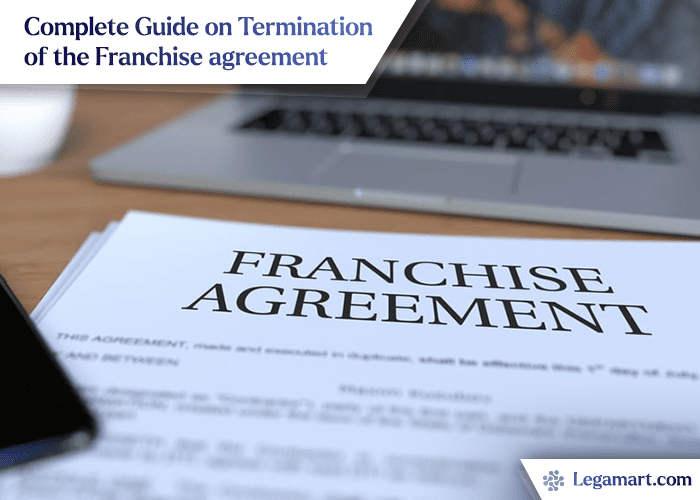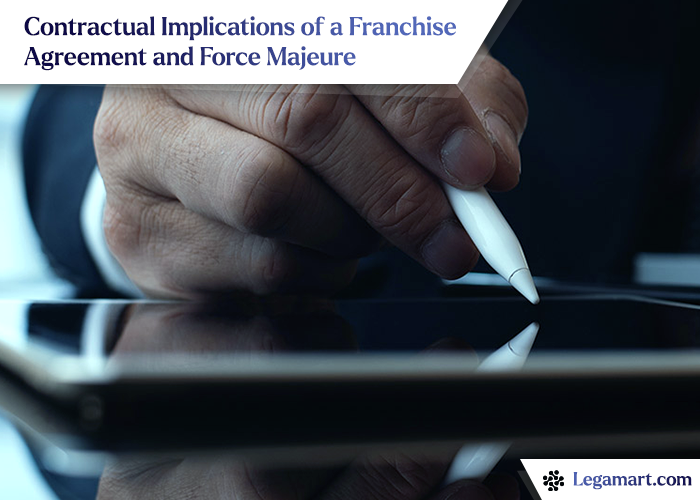International Franchise Agreement
An international franchise agreement is a legal agreement between a franchisor and a franchisee that allows the franchisee to use the franchisor’s intellectual property, business model, and brand in exchange for fees and royalties. Companies and businessmen must ensure that their franchise agreements comply with international legal requirements, such as the European Code of Ethics for Franchising or the International Franchise Association’s Code of Ethics, to avoid disputes and legal issues. In case of disputes, companies should seek legal advice to enforce their rights and claims under the applicable law and dispute resolution mechanisms, such as arbitration or litigation.
Find best lawyers for International Franchise Agreement
Issues related to International Franchise Agreement
A franchise agreement is a contract between the franchisor and the franchisee. You should read it carefully and note the termination clause, which specifies when the agreement may be terminated. Consult with a business attorney before signing them. State law may apply. Most prevent termination except for a good cause.
Without a material breach of contract or other problems, most franchises terminate at the contract’s expiration or if the franchisee declines to renew the franchise option if either is specified.
Termination:
Typically a termination clause contains statements for either party to do the following:
Suspend performance under the agreement when there is a “material breach” of the contract by the other party.
Terminate the agreement when a material breach has occurred and has not been resolved within a reasonable time after a demand for resolution has been made.
A material breach occurs when a party does not comply with a provision of the contract, which then dismantles the value of the contract or deprives one of the parties of its benefit of it.
A franchisor can terminate the agreement if a franchisee:
Is convicted of a crime
Loses a necessary license or lease
Fails to pay royalties
Fails to correct defaults after notice
Goes bankrupt or becomes insolvent
Fails to follow franchisor requirements regarding location and appearance
Fails to comply with required business operations
A franchisee can terminate the agreement if a franchisor:
Fails to provide training and support as stipulated in the contract
Commits fraud or misrepresents the potential profits
Fails to protect the franchisee’s business opportunity or territory
Goes bankrupt or becomes insolvent
Indeed, other terms can exist within the contract, including what the consequences would be legally and financially if you simply closed up shop and abandoned the franchise.


After terminating the franchise agreement:
The franchise agreement may also have contractual obligations (mainly for the franchisee) after termination is complete or the agreement has expired. The franchisee must:
Stop using the franchisor’s trade name, trademarks, and service marks.
Agree to a Covenant Not to Complete or a No-Compete clause
Pay all outstanding amounts due.
Return franchisor manuals
Agree not to use trade secrets
The franchisor may have a clause containing the right to repurchase branded inventory.
If you wish to terminate your franchise agreement:
If you have decided to terminate the franchise agreement before it expires, consult a business attorney familiar with franchising. Before you attempt termination, ask your lawyer:
Is a material breach by the franchisor the only way out of the
Can my franchise be transferred to another person, and do I need permission from the franchisor?
(If you are the franchisor) How can I protect myself from liability for something the franchisee did before the contract ended?
Once you determine to terminate your franchise agreement, you and your attorney must draft a letter and request termination in writing. The letter should detail your intention to terminate the agreement, close the franchise, and be sent to the franchisor.
Use certified or registered mail or another mailing service that tracks your letter. Follow all the original franchise agreement protocols if you sell or transfer the operations. Consult with your attorney to ensure you are legally and financially clear.
If you agreed to a franchise opportunity, whether as a franchisor or franchisee, your franchise agreement should contain a legal termination clause spelling out all the requirements of ending the agreement.
A franchise agreement is the cornerstone document of the franchisee-franchisor relationship. The agreement is legally binding on both parties, laying out rights and obligations. It’s on this basis that a long-term relationship grows. Therefore, when drafting an international franchise agreement, be sure to include provisions covering, in considerable detail, the obligations of the franchisor (the company franchising its business) and franchisee (the individual buying a franchise) regarding the day-to-day operation of the business.


A well-drafted franchise agreement:
A well-drafted franchise agreement will include the following:
- Right to use franchisor’s intellectual property
- Franchise territory and appropriate exclusivity
- Expansion options
- Business Development obligation
- Payable royalty fees
- Equipment and supplies
- Training and Proprietary Manuals
- Term and Termination
- Dispute resolution
Of course, because every case is different, there is no standard form of franchise agreement because the terms, conditions, and methods of operating vary widely. For example, franchises for printing, employment agencies, and automotive products will differ from franchises for fast food services, convenience stores, or clothing. Anyone who is considering purchasing a franchise will have to deal with several matters which relate both to business and personal insurance, and these broadly fall under three main headings:
- Insurance Protection for the Business
- Personal Financial Protection for the Franchisee
- Planning for the Future
Insurance Protection for the Business:
Having invested money in a Franchise, adequate insurance protection must be arranged both for the assets of the business you have purchased and the liabilities you will incur in running the business.
The detail of what risks you need to insure will vary from business to business. Indeed many of them will be set out in the Franchise Agreement, and such risks, the cover will be mandatory for such risks. That said, most basic commercial insurance policies incorporate some or all of the following:
Fire, Theft, and Damage cover for buildings, contents, or stock
Business Interruption insurance to meet your ongoing costs and expenses if a fire destroys your central place of work
Liability insurance for claims from either employees or members of the public if they are injured or their property is damaged, and you are held responsible.
Transit insurance covers your goods carried in your vehicle or by a haulier.
Money insurance if you lose cash or cheques
Many Franchisors make life easier for their Franchisees by running.
Group Insurance Schemes, which their Franchisees are encouraged to join. However, whenever considering Business Insurance protection for a Franchise, you do need to be aware of several other matters:
The Franchisor-Franchisee relationship is unusual and results in a substantial degree of inter-dependency.
In insurance terms, a loss suffered by one party can affect the trading of the other. For example, a fire at a Franchisor’s depot can easily disrupt the supply of goods to the Franchisee. Again a claim for injury brought by a public member can as quickly involve the Franchisor as the Franchisee, as one is, in a sense, the trading extension of the other.
For these reasons, “standard” insurance policies are insufficient. Instead, they need to be adapted to meet the specific needs of the Franchisor-Franchisee relationship.
You are therefore advised to do the following.
Ask your Franchisor for details of his Franchisee Insurance Scheme. If none exists, suggest one be established; they are almost always beneficial and greatly assist in protecting the whole Franchise by establishing prudent levels of cover at a competitive cost.
Always seek professional help and advice from those specialising in this field. Never simply buy on cost.

Personal Financial Protection for the Franchisee:
One of the attractions of buying a Franchise is that you get to work for yourself and run your own business. The upside of this, of course, is that you can benefit from your labour. Working for yourself does, however, also carry risks, and one of the most obvious is what happens if you have an accident, are off sick, or were to die.
Latest Articles
Tell us more about your problem.
Please give a brief description about what it is you need to talk to our lawyers about ?
Frequently Asked Questions
What are the key provisions of an international franchise agreement?
An international franchise agreement typically includes the following key provisions:
Grant of Franchise: This provision defines the rights granted to the franchisee, including the right to use the franchisor’s trademark, trade name, or other proprietary information.
Territory: The agreement will specify the geographic area where the franchisee has the exclusive right to operate the franchise.
Term: The length of the franchise agreement and any renewal options should be clearly defined.
Fees and Royalties: The agreement should specify the fees and royalties payable by the franchisee to the franchisor, including any initial franchise fees, ongoing royalty fees, and advertising fees.
Training and Support: The franchisor should provide training and ongoing support to the franchisee, including assistance with site selection, marketing and advertising, and operational procedures.
Operations Manual: The franchisor should provide the franchisee with an operations manual that outlines the standards and procedures for operating the franchise.
Quality Control: The franchisor should have the right to inspect the franchisee’s operations to ensure compliance with the standards set forth in the agreement.
Intellectual Property: The franchisor should retain ownership of all intellectual property associated with the franchise, and the franchisee should agree to protect and maintain the franchisor’s intellectual property rights.
Termination: The agreement should specify the circumstances under which the franchise may be terminated, including breach of the agreement by either party.
Dispute Resolution: The agreement should include a mechanism for resolving disputes between the franchisor and franchisee, such as arbitration or mediation.
These provisions are designed to establish a clear understanding between the franchisor and franchisee and to protect the interests of both parties. It is important to consult with legal counsel when drafting an international franchise agreement to ensure compliance with local laws and regulations.
How can I protect my intellectual property when franchising in the United Kingdom or China?
Protecting intellectual property (IP) when franchising in the United Kingdom or China can be a complex process, but there are several steps you can take to help safeguard your IP:
Register Trademarks: In both the UK and China, trademark registration is an effective way to protect your brand and prevent others from using similar marks. You should register your trademarks with the relevant authorities in each country.
Obtain Patents: If your franchise involves a unique product or process, you should consider obtaining patents to protect your invention. This can help prevent others from making, using, or selling the same product or process without your permission.
Use Confidentiality Agreements: It’s important to use confidentiality agreements with franchisees, employees, and other parties involved in your franchise system. These agreements can help prevent the unauthorized disclosure of confidential information, such as trade secrets.
Include IP Provisions in Franchise Agreements: Your franchise agreement should include provisions that address the protection of your IP, such as restrictions on the use of trademarks, copyrights, and other proprietary information.
Monitor and Enforce IP Rights: Regular monitoring can help you identify potential infringements of your IP rights. If you do identify infringement, you should take appropriate legal action to enforce your rights.
Seek Legal Advice: It’s important to work with experienced legal counsel who can advise you on the most effective strategies for protecting your IP in the UK or China.
By taking these steps, you can help safeguard your intellectual property and ensure that your franchise is protected against infringement and misappropriation.
What are some common challenges that arise in international franchise agreements, and how can they be addressed?
There are several common challenges that can arise in international franchise agreements, including:
Cultural Differences: Different cultures may have different business practices, and it’s important to take these into account when drafting a contract. To address this challenge, franchisors should seek to understand the cultural norms of the countries where they operate and consider adapting their franchise system to meet local needs.
Language Barriers: Language barriers can make it difficult to communicate effectively with franchisees and ensure that they understand their obligations under the agreement. To address this challenge, franchisors should consider using bilingual contracts or working with translators to ensure clear communication.
Legal Compliance: Franchise agreements must comply with the legal requirements of the countries where they are implemented. This can be challenging as laws and regulations vary from country to country. To address this challenge, franchisors should work with legal counsel who is familiar with the local laws and regulations.
Quality Control: Maintaining quality control across franchises in different countries can be challenging. To address this challenge, franchisors should implement strict standards and procedures for all franchisees to follow, regularly monitor franchisee performance, and provide ongoing training and support.
Dispute Resolution: Disputes may arise between franchisors and franchisees, particularly when operating in different countries. To address this challenge, franchise agreements should include a dispute resolution process, such as arbitration or mediation.
Market Entry Strategy: Entering new markets can be a challenge, particularly in countries where the franchisor has limited experience or knowledge. To address this challenge, franchisors should conduct extensive research on the local market, adapt their franchise system to meet local needs, and work with experienced partners who have local knowledge and expertise.
By addressing these challenges proactively, franchisors can help ensure the success of their international franchise agreements and protect their brand reputation.












